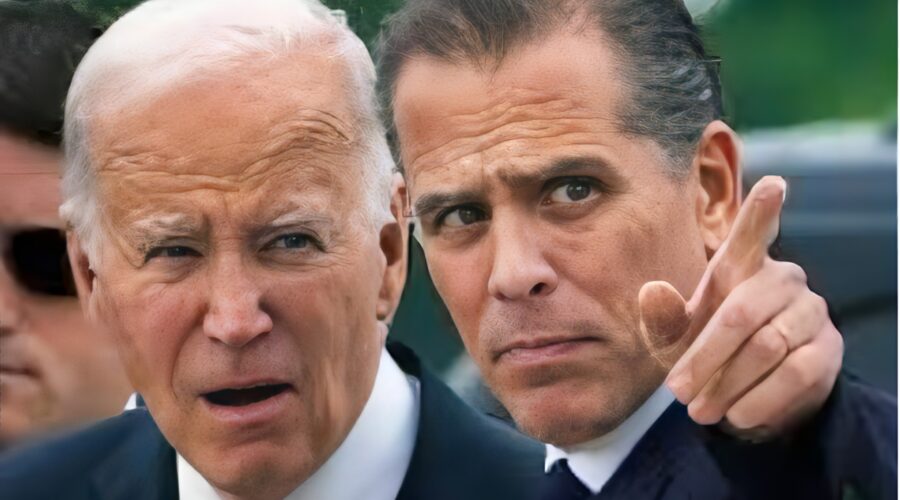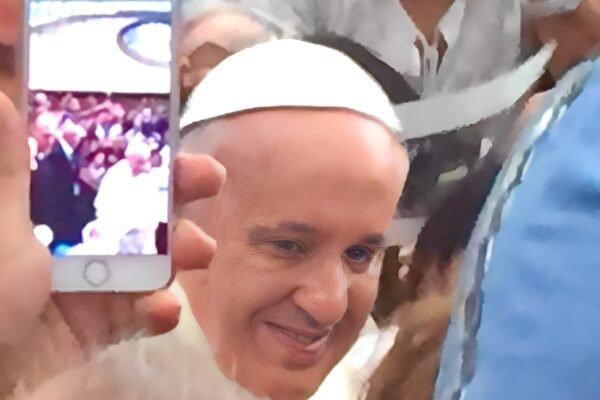Fathers and Sons. And headaches and heartbreaks in between. Joe and Hunter Biden are like Turgenev’s timeless depiction of generational conflict during social upheaval in another disturbing time in history. And in the end, it comes down to this: Joe Biden, the 46th President of the United States, chose to pardon his son, Hunter Biden, shielding him from a prison sentence that would have compounded an already challenging and public struggle. The decision is bound to spark controversy, ignite political attacks, and tarnish his legacy as he prepares to leave the presidency. But as a father, I find it hard not to understand the impulse behind the choice.
I have two sons, both of whom have led lives I’m proud of, free of the turmoil that has haunted Hunter Biden. I am fortunate in that. Neither has been dragged through public scandals, criminal charges, or the kind of personal unraveling that has made Hunter a political lightning rod. But every parent knows the fear of a child losing their way, and I can imagine the sleepless nights Joe Biden endured, the quiet moments of guilt, and the unbearable weight of wondering where he went wrong.

Joe Biden has lived a life marked by profound personal tragedy. The loss of his first wife, Neilia, and their daughter, Naomi, in a car accident shaped his early years in politics. His resilience in the face of such loss was inspiring, and the devotion to his surviving sons, Beau and Hunter, became central to his identity.
Beau, the golden child with the seemingly limitless potential, passed away in 2015 from brain cancer. His death was a blow from which no parent could ever fully recover. That left Hunter, the son who struggled in ways that were both public and deeply personal. Addiction, business controversies, and legal troubles followed Hunter into adulthood. For Joe Biden, losing Beau and watching Hunter falter must have felt like being caught in an endless storm.
Still, Joe rebuilt. He found love with Jill and started anew, navigating an extraordinary political career while trying to hold his family together. But perhaps, in protecting what remained of his family, he failed to recognize the cracks forming under his watch.
Parenting is full of contradictions: we love fiercely, but sometimes that love can blind us. We set expectations but don’t always enforce them. We want to protect our children but also teach them to stand on their own. Joe Biden is no different. His bond with Hunter is undeniable, and so is his sense of responsibility as a father.
Perhaps Biden was too absent, out on the campaign trail when Hunter needed him most. Perhaps he leaned on Beau, the more stable son, to keep things in balance. Or perhaps, like all of us, he was simply doing his best with what he knew at the time.
No father wants to watch their child spiral into addiction or make decisions that lead to criminal behavior. But when it happens, the urge to protect—to save—becomes overwhelming. It’s not hard to imagine that Joe Biden looks at his son’s life and wonders if he could have done more, if he could have been a better father.
By pardoning Hunter, Joe Biden has chosen to prioritize his role as a father over his legacy as a president. It’s a deeply human decision, and one that reflects the core of who he is. For critics, this will be an unforgivable act, an abuse of power that reeks of favoritism. For others, it’s a reminder that even the most powerful people are, at their core, simply parents trying to do right by their children.
It’s also a cautionary tale. Hunter’s troubles didn’t arise in a vacuum. They were shaped by privilege, opportunity, and the pressures of being a Biden. It’s possible Joe’s protective instincts shielded Hunter from the consequences he needed to face earlier in life. Did that protection inadvertently enable his worst tendencies? Did the cocoon of family and political connections allow him to evade accountability until it was too late?
The pardon will not go unnoticed by history. Joe Biden has staked his political identity on integrity, decency, and a commitment to justice. Pardoning his son complicates that narrative, leaving his detractors with fresh ammunition. The move may overshadow his presidency’s accomplishments, fueling debates about nepotism and the use of presidential power.
But history will also record the humanity of the decision. Joe Biden’s presidency has been defined by empathy, often born of his own pain. His willingness to act from the heart, even when it might cost him politically, is both his greatest strength and his Achilles’ heel.
As I reflect on Joe Biden’s choice, I can’t help but think about my own relationship with my sons. Parenthood is a role we never outgrow. No matter how old our children get, they remain our greatest source of pride—and our greatest vulnerability.
My sons have been fortunate in ways Hunter Biden has not, but that doesn’t make me a better father than Joe Biden. It just makes me luckier. The line between success and struggle is often razor-thin, and the factors that tip the scale are sometimes beyond our control.
Joe Biden’s pardon of Hunter isn’t just about politics; it’s about the unbreakable bond between parent and child. It’s about a father’s hope that his son can still find redemption, that a lifetime of mistakes can be undone, that love and forgiveness can prevail over judgment and condemnation.
This story is not just about the Bidens. It’s about all of us—about the ways we navigate family, failure, and forgiveness. It’s about the choices we make to protect the people we love, even when those choices come at a cost.
Joe Biden’s decision to pardon his son will be dissected and debated for years to come. But in the end, it’s a reminder that even presidents are human, and that the ties of family can compel us to act in ways that defy politics, logic, and even self-interest.
As a father, I understand Joe Biden’s decision. As an observer, I recognize its flaws. But as a human being, I can’t help but feel for a man who has endured unimaginable loss and is simply trying to hold on to what remains.
It’s easy to criticize from the outside. It’s harder to stand in his shoes and imagine the pain, the guilt, and the love that drove his choice. For that, I extend both sympathy and caution—a recognition that in parenting, as in politics, there are no perfect answers. Only the hope that we’re doing what’s best for those we care about most.
TONY CASTRO, the former award-winning Los Angeles columnist and author, is a writer-at-large and the national political writer for LAMonthly.org. His forthcoming novel, THE BOOK OF MARILYN, will be published in 2025. He can be reached at tony@tonycastro.com.





